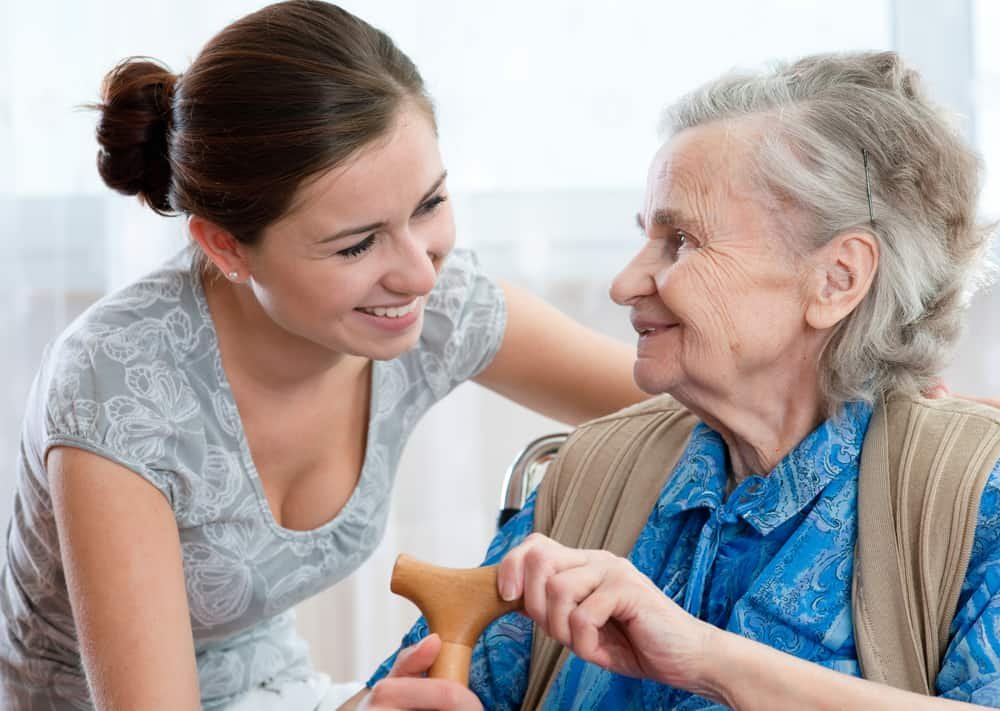Nestled within the lush greenery of Texas lies Kingwood, a charming community known for its tranquil atmosphere and warm hospitality. In this picturesque town, seniors find solace in the comfort of their own homes, surrounded by familiar sights and cherished memories. As the golden years gracefully unfold, ensuring optimal care and support becomes paramount for both the elderly individuals and their loved ones. With a growing emphasis on in-home senior care in Kingwood TX, families are seeking innovative ways to enhance the quality of life for their aging relatives while allowing them to age gracefully within familiar surroundings.
The concept of in-home senior care is not merely about meeting basic needs but also about fostering a sense of independence, dignity, and emotional well-being among older adults. From providing assistance with daily tasks to offering companionship and specialized healthcare services, the realm of senior care has evolved significantly to cater to the unique requirements of each individual. In Kingwood TX, where community values run deep and neighbors feel like extended family members, the approach towards caring for seniors goes beyond just physical aid – it encompasses holistic support that nurtures mind, body, and spirit alike. Join us as we delve into the top tips for navigating through the realm of in-home senior care in Kingwood TX with compassion, efficiency, and above all else – utmost respect for our beloved elders.
The Necessity of Understanding the Needs of Seniors
As we age, our needs and priorities evolve, especially when it comes to seniors. One key aspect to understand is the importance of social connections for seniors. Loneliness and isolation can have a significant impact on their mental health and well-being, so fostering relationships with friends and family members becomes crucial.
Additionally, providing opportunities for physical activity tailored to seniors’ abilities is essential to maintain their mobility and independence. From gentle exercises like walking or yoga to more specialized programs such as senior swimming classes or tai chi, staying active can improve both physical and mental health in older adults. Ultimately, by understanding the unique needs of seniors and adapting our approach accordingly, we can help them lead fulfilling lives during their golden years.
A Safe Living Environment is a Priority
Creating a safe living environment for seniors requires careful consideration and planning. One important aspect to focus on is ensuring proper lighting throughout the home, especially in areas with high traffic. Installing grab bars in bathrooms and near stairways can provide added support and prevent dangerous falls. Additionally, removing any clutter or obstacles that may pose a tripping hazard is essential.
Another key component of a safe living environment is regular maintenance and inspection of household appliances and systems. Ensuring that smoke detectors are working properly, carbon monoxide alarms are installed, and electrical wiring is up to code can help prevent accidents or emergencies from occurring. It’s also important to have a clear communication plan in place in case of emergencies, such as having emergency contact numbers easily accessible throughout the home.
Overall, creating a safe living environment for seniors involves proactive measures to minimize risks and promote independence. By implementing these steps and staying vigilant about potential hazards, caregivers can help ensure that their loved ones can age safely and comfortably in their own homes.
Maintaining Proper Nutrition and Hydration
When it comes to in-home care for the elderly, maintaining proper nutrition and hydration is crucial for their overall well-being. Seniors often face challenges with cooking nutritious meals or remembering to drink enough water, so caregivers play a vital role in assisting with meal planning and encouraging hydration. Including a variety of colorful fruits and vegetables in their diet can provide essential vitamins and minerals, while lean proteins like fish or chicken help maintain muscle strength.
Moreover, staying hydrated is key to preventing issues like urinary tract infections and constipation which are common among the elderly. Encouraging the elderly to drink water throughout the day or consuming hydrating foods such as watermelon or cucumber can support their hydration needs effectively. Additionally, incorporating herbal teas or flavored water can make staying hydrated more enjoyable for seniors who may struggle with plain water intake.
If and when proper nutrition and hydration in in-home care for the elderly are considered to be top priorities, caregivers can significantly impact the health and quality of life of their loved ones. Making small but meaningful dietary adjustments tailored to individual preferences and needs can go a long way in promoting vitality and overall wellness among seniors receiving at-home care.
Encouraging Physical Activity and Mental Stimulation
Engaging in physical activity and mental stimulation is crucial for seniors to maintain their overall well-being. In-home physical therapy offers a convenient and personalized approach to promoting movement and cognitive function. Regular exercises tailored to individual needs can help improve balance, strength, and flexibility, reducing the risk of falls and enhancing independence.
Moreover, engaging in mental stimulation activities such as puzzles or memory games can support cognitive health and prevent cognitive decline. By incorporating a combination of physical activity and mental stimulation into daily routines, seniors can experience improved mood, increased energy levels, and enhanced overall quality of life. Embracing these practices not only benefits the body but also contributes to maintaining sharpness of mind, fostering a sense of achievement through progress in both physical fitness and mental agility.
Establishing a Routine for Comfort and Security
Creating a routine for comfort and security is essential for seniors living in their own homes. By establishing a consistent schedule for activities such as meals, medication, exercise, and social interactions, seniors can feel a sense of stability and predictability in their daily lives. This routine not only promotes physical well-being but also contributes to emotional well-being by reducing feelings of anxiety or uncertainty.
In addition to the practical aspects of a routine, it can also serve as a form of self-care for seniors. By prioritizing regular self-care activities such as mindfulness exercises, hobbies they enjoy, or relaxation techniques, seniors can better manage stress and improve their overall quality of life. Ultimately, by investing time and effort into establishing a supportive daily routine, caregivers can help seniors maintain their independence while ensuring they feel safe and secure in their own homes.
Utilizing Support Services and Resources
When it comes to providing elder care at home, utilizing support services and resources can be a game-changer for both the caregiver and the elderly individual. Services such as home health aides, meal delivery programs, and transportation services can offer much-needed assistance in managing daily tasks and ensuring the well-being of your loved one. Additionally, resources like support groups, online forums, and caregiver training programs can provide emotional support and valuable knowledge on how to navigate the challenges of caring for an elderly family member.
By tapping into these support services and resources, caregivers can alleviate some of the burdens that come with providing constant care for an aging parent or relative. It’s important to remember that seeking help is not a sign of weakness but rather a smart decision that can benefit everyone involved. With the right support system in place, caregivers can reduce stress levels, prevent burnout, and ultimately provide better care for their loved ones while maintaining their own well-being.
Providing Quality Care for Loved Ones
In conclusion, ensuring quality care for elderly loved ones is essential in maintaining their health and well-being. By taking the time to research and select reputable caregivers or facilities, families can feel confident that their loved ones are in good hands. Communication with healthcare providers and regular check-ins can help address any concerns or make necessary adjustments to the care plan. Additionally, fostering a supportive and loving environment can greatly enhance the overall quality of life for elderly individuals. Let us continue to prioritize the needs of our aging population and provide them with the care and respect they deserve.


